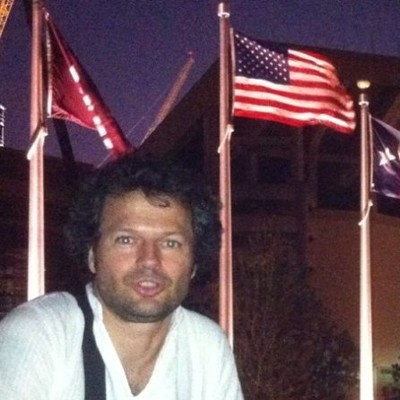
David R. Galindo
- Courses7
- Reviews8
- School: Stephen F. Austin State University
- Campus:
- Department: History
- Email address: Join to see
- Phone: Join to see
-
Location:
Nacogdoches, TX - Dates at Stephen F. Austin State University: October 2013 - April 2015
- Office Hours: Join to see
Biography
Stephen F. Austin State University - History
Resume
2008
Southern Methodist University
Frankfurt Am Main Area
Germany
Collaborative Research Centre 1095 \"Discourses of Weakness and Resource Regimes\"
Research Fellow
Max-Planck-Institut für europäische Rechtsgeschichte
Instructor/Visiting Lecturer of Spanish and History
Dallas/Fort Worth Area
Southern Methodist University
2004
Doctor of Philosophy (Ph.D.)
History
Southern Methodist University
2002
Diploma de Estudios Avanzados
History of Early Modern Spain
Universidad Nacional de Educación a Distancia - U.N.E.D.
Master's Degree
North-American Studies
Universidad de Alcalá
2000
Tecosim GmbH
Engineer
Cologne Area
Germany
Tecosim GmbH
Engineer
Madrid Area
Spain
Airbus Group
Stephen F. Austin State University
1999
KLK Engineering
Max-Planck-Institut für europäische Rechtsgeschichte
Engineer
Stuttgart Area
Germany
KLK Engineering
German
French
Portuguese
English
Spanish
Friends of Thoreau Fellowship
Franklin Institute of North American Studies
Universidad de Alcalá
Spain
Lewis Hanke Post-Doctoral Award
Conference on Latin American History
John H. Jenkins Research Fellowship in Texas History
Texas State Historical Association
Short-Term Research Grant in Atlantic History
Harvard University
1998
Rucker AG
Engineer
Stuttgart Area
Germany
Rucker AG
1997
Renault
Universidad Adolfo Ibáñez
Airbus Group
Engineering internship
Valladolid Area
Spain
Renault
Santiago Province
Chile
Assistant Professor Of History
Universidad Adolfo Ibáñez
1990
Engineer's Degree
Industrial Engineering
Universidad de Valladolid
Student Affairs
Student Development
Curriculum Design
Research
Higher Education
University Teaching
Teaching
History
Curriculum Development
Editing
Public Speaking
Article: “Franciscanos e indios en la Alta California española
1769-1822.” [Franciscans and Indians in Spanish Alta California
1769-1822]
Article: “Franciscanos e indios en la Alta California española
1769-1822.” [Franciscans and Indians in Spanish Alta California
1769-1822]
Book Chapter: “Conferences on Theology and Indian Languages: A Program to Train Missionaries in New Spain.”
“La sacramentalización de la frontera. El programa misionero franciscano del Colegio Apostólico de Tarija en Bolivia al final de la colonia.” [Sacramentalizing the Frontier: The Franciscan Missionary Program of the College of Tarija in Colonial Bolivia]
Article: “De mansos corderos a tigres y leones: Los misioneros franciscanos ante la conversión religiosa en la Alta California española.” [From docile sheep to tigers and lions: Franciscan Missionaries facing Religious Conversion in Spanish California]
Edited Book: La frontera en el mundo hispánico. [The Frontier in the Hispanic World]
For 300 years
Franciscans were at the forefront of the spread of Catholicism in the New World. In the late seventeenth century
Franciscans developed a far-reaching
systematic missionary program in Spain and the Americas. After founding the first college of propaganda fide in the Mexican city of Querétaro
the Franciscan Order established six additional colleges in New Spain
ten in South America
and twelve in Spain. From these colleges Franciscans proselytized Indians in frontier territories as well as Catholics in rural and urban areas in eighteenth-century Spain and Spanish America.\n\nTo Sin No More is the first book to study these colleges
their missionaries
and their multifaceted
sweeping missionary programs. By focusing on the recruitment of non-Catholics to Catholicism as well as the deepening of religious fervor among Catholics
David Rex Galindo shows how the Franciscan colleges expanded and shaped popular Catholicism in the eighteenth-century Spanish Atlantic world. This book explores the motivations driving Franciscan friars
their lives inside the colleges
their training
and their ministry among Catholics
an often-overlooked duty that paralleled missionary deployments. Rex Galindo argues that Franciscan missionaries aimed to reform or \"reawaken\" Catholic parishioners just as much as they sought to convert non-Christian Indians.
Book: To Sin No More: Franciscans and Conversion in the Hispanic World
1683-1830
As one of America’s most important missionaries
Junípero Serra is widely recognized as the founding father of California’s missions. It was for that work that he was canonized in 2015 by Pope Francis. Less well known
however
is the degree to which Junípero Serra embodied the social
religious and artistic currents that shaped Spain and Mexico across the 18th century. Further
Serra’s reception in American culture in the 19th and 20th centuries has often been obscured by the controversies surrounding his treatment of California’s Indians. This volume situates Serra in the larger Spanish and Mexican contexts within which he lived
learned
and came of age. Offering a rare glimpse into Serra’s life
these essays capture the full complexity of cultural trends and developments that paved the way for this powerful missionary to become not only California’s most polarizing historical figure but also North America’s first Spanish colonial saint.
Book Chapter: \"Inside the Cloister: Exploring the Life of Fray Junípero Serra in the College of San Fernando.\"
José Luis Paz Nomey
Melina Kalfelis
Agency and Asymmetries: Actors and their Access to Resources in Colonial and Developmental Setting
Article: “Primero hombres
luego cristianos”: Un análisis de la conversión forzosa en la frontera de Texas
Stephen F. Austin State University
Possible Matching Profiles
The following profiles may or may not be the same professor:
- David Galindo
Texas A&M University - History - David Galindo
Northeast Lakeview College - History
Possible Matching Profiles
The following profiles may or may not be the same professor:
- David Galindo Cervantes (-10% Match)
Staff Research Associate 2
University Of California - University Of California






